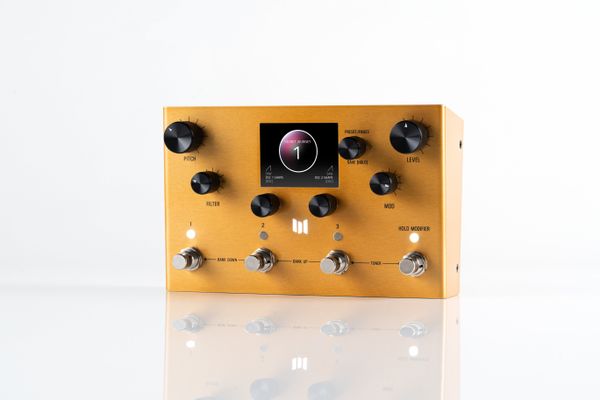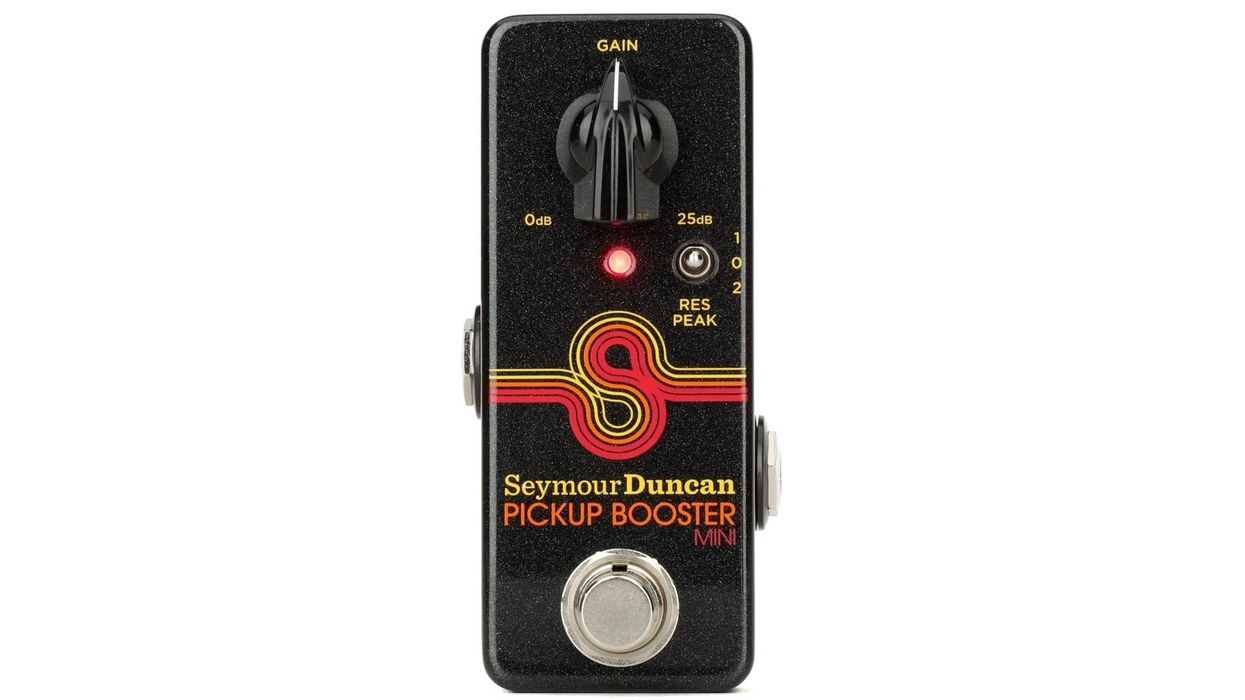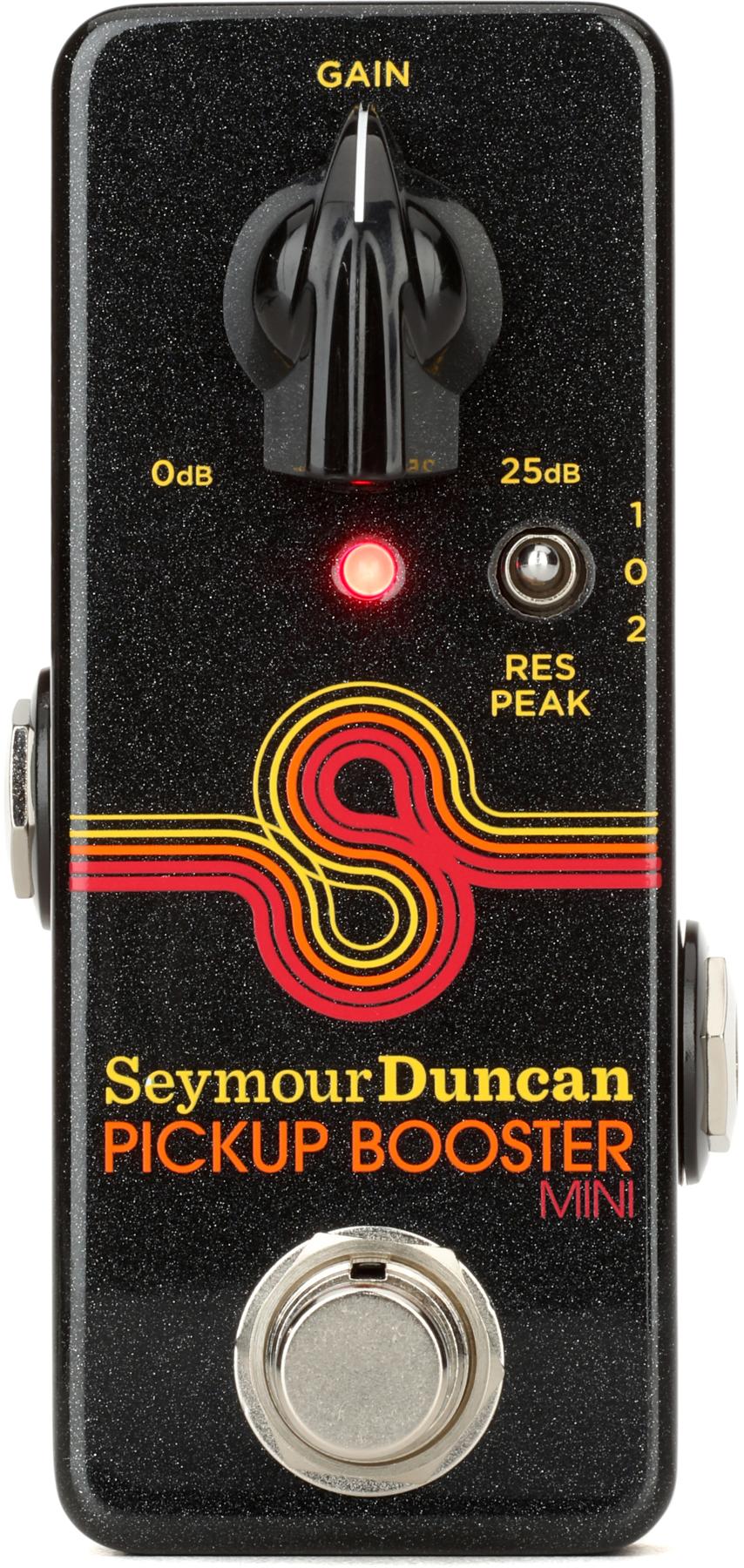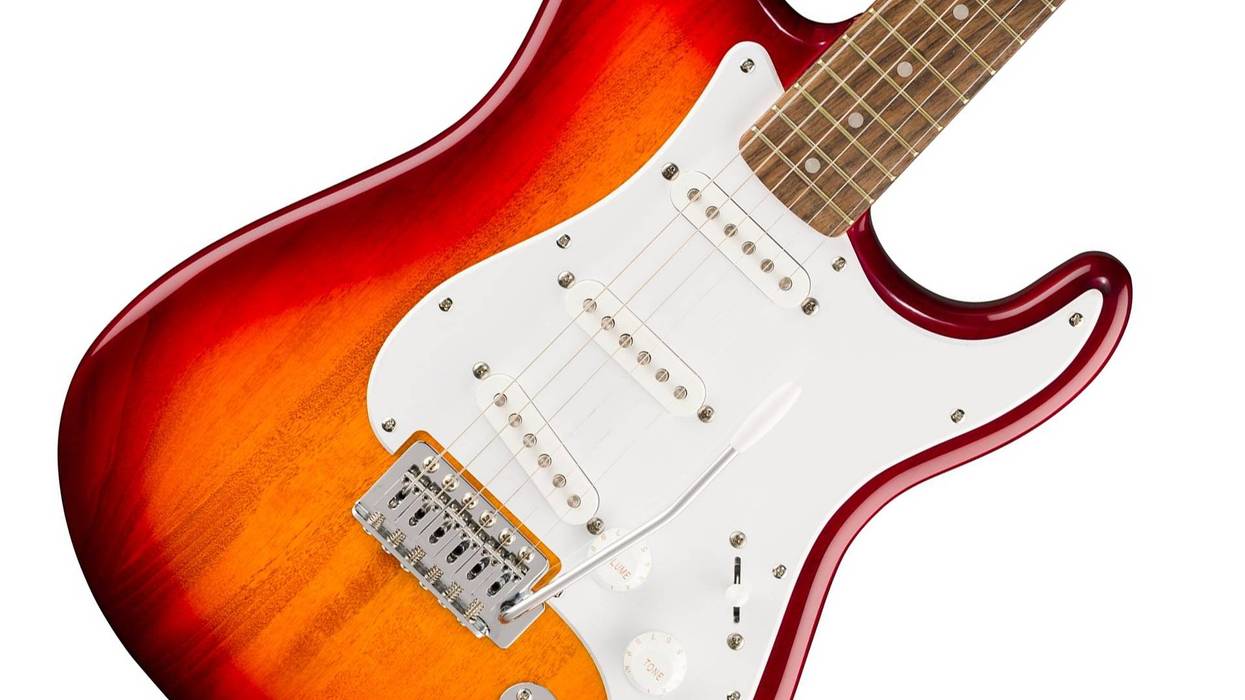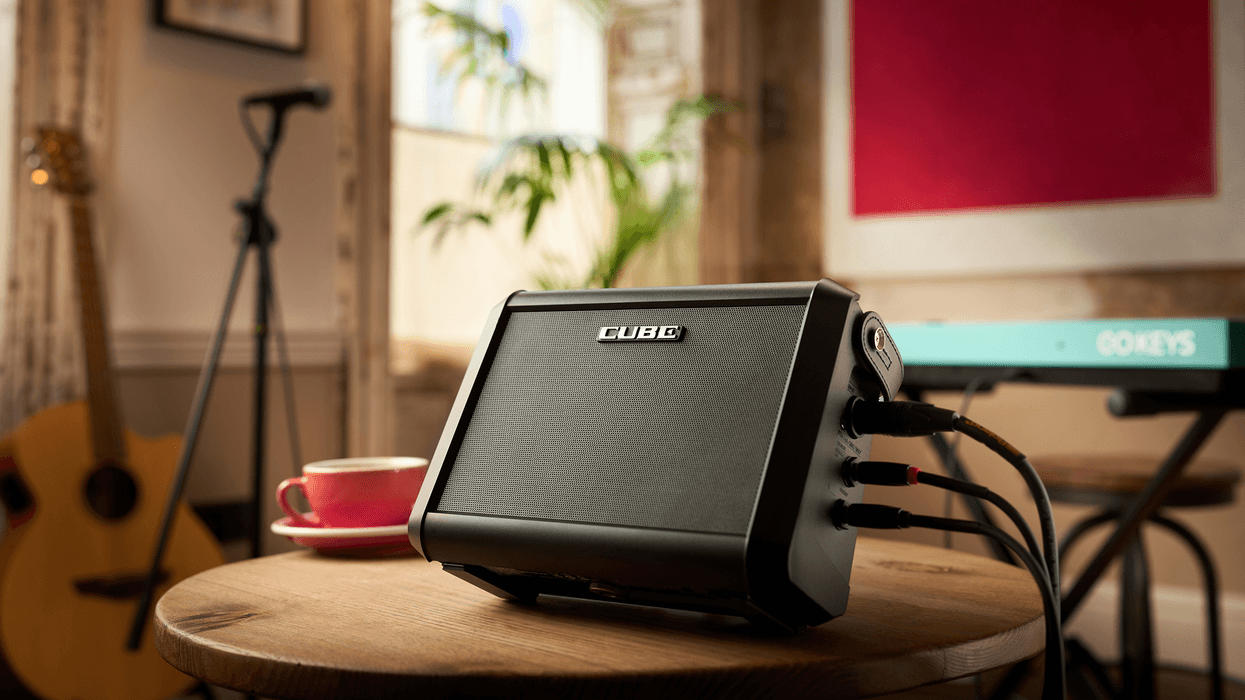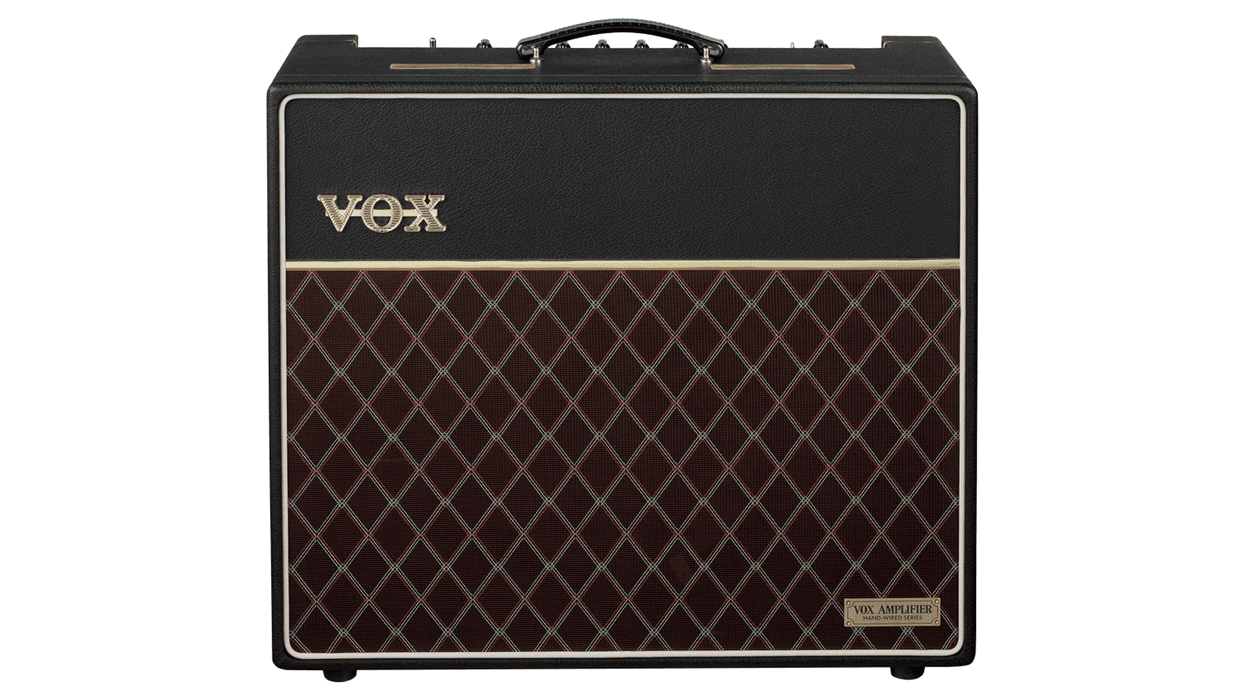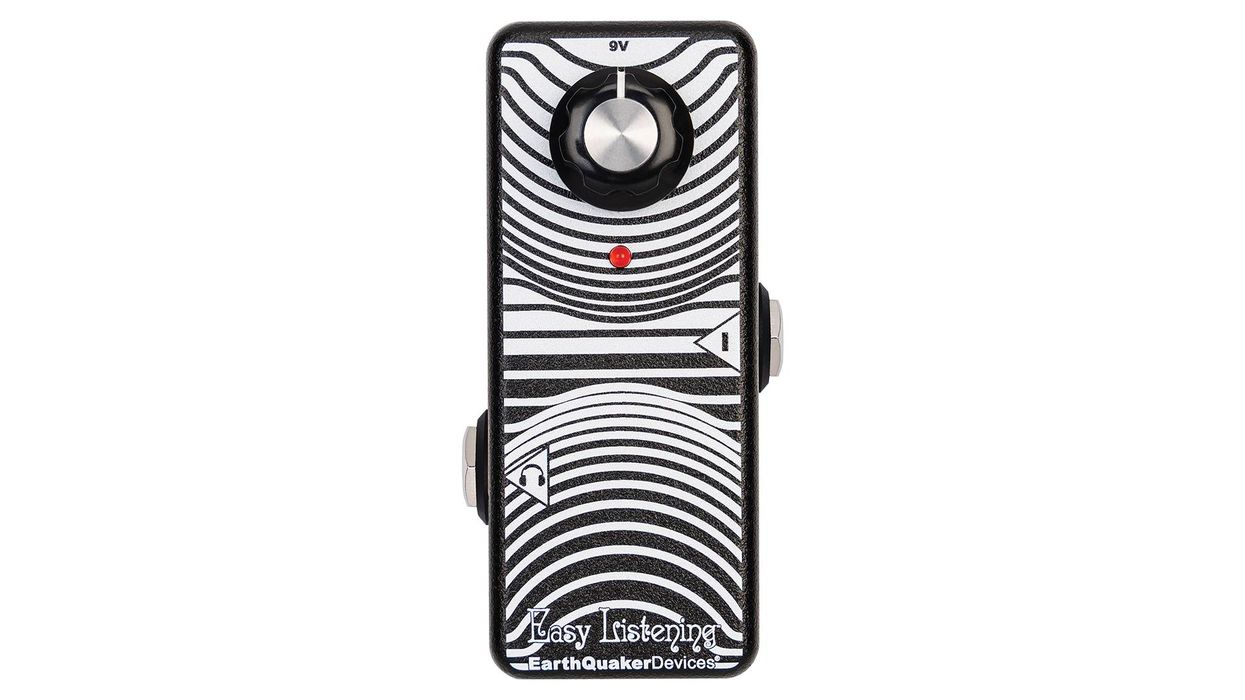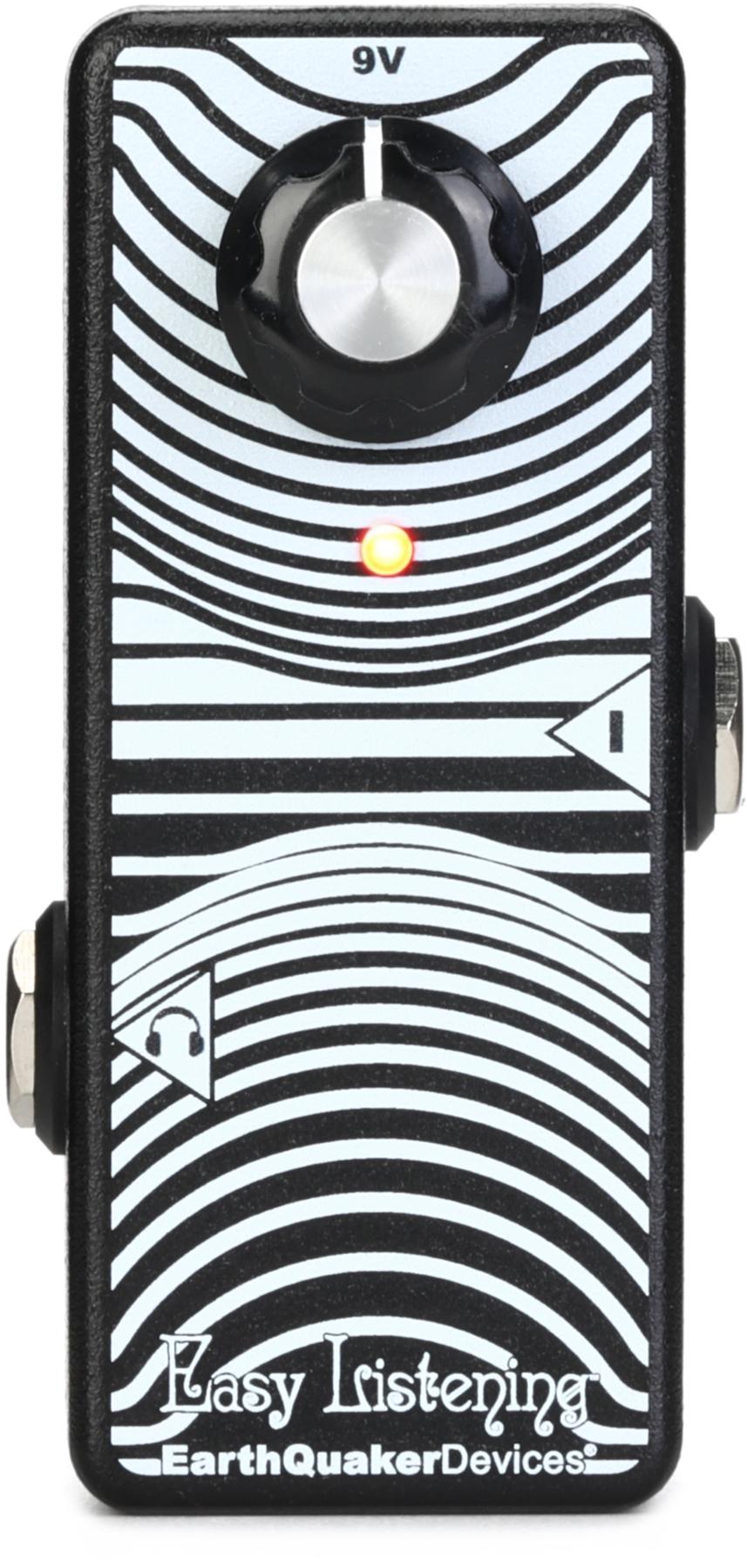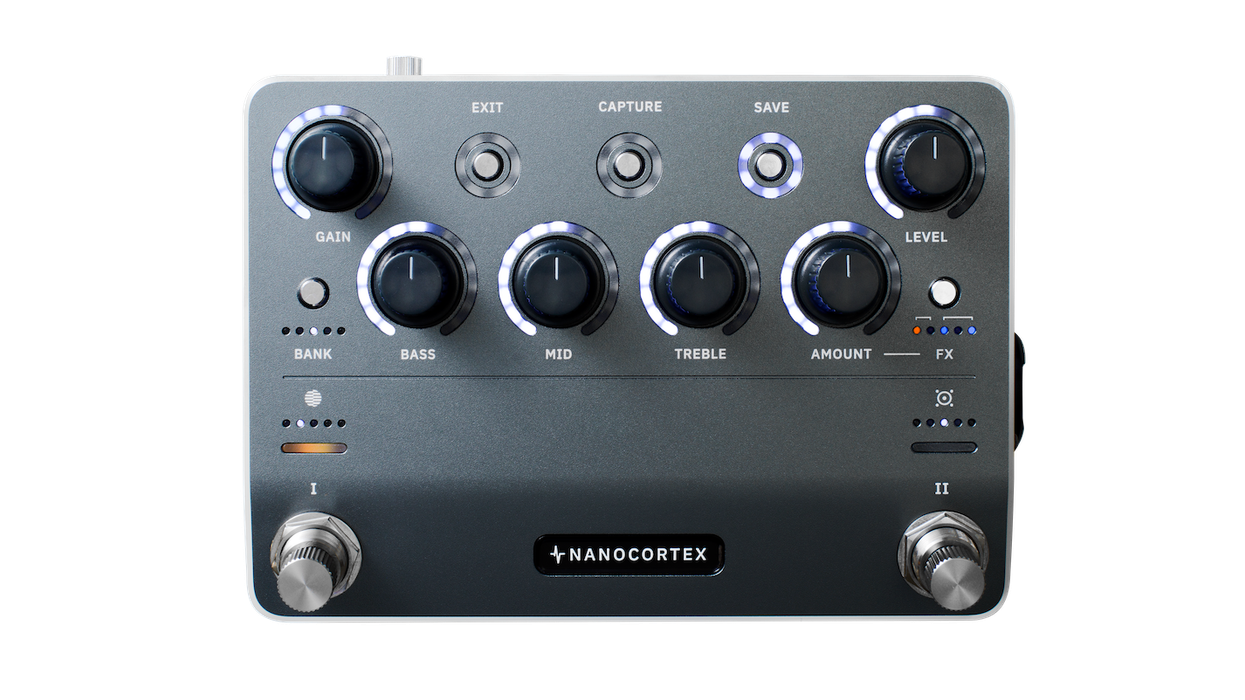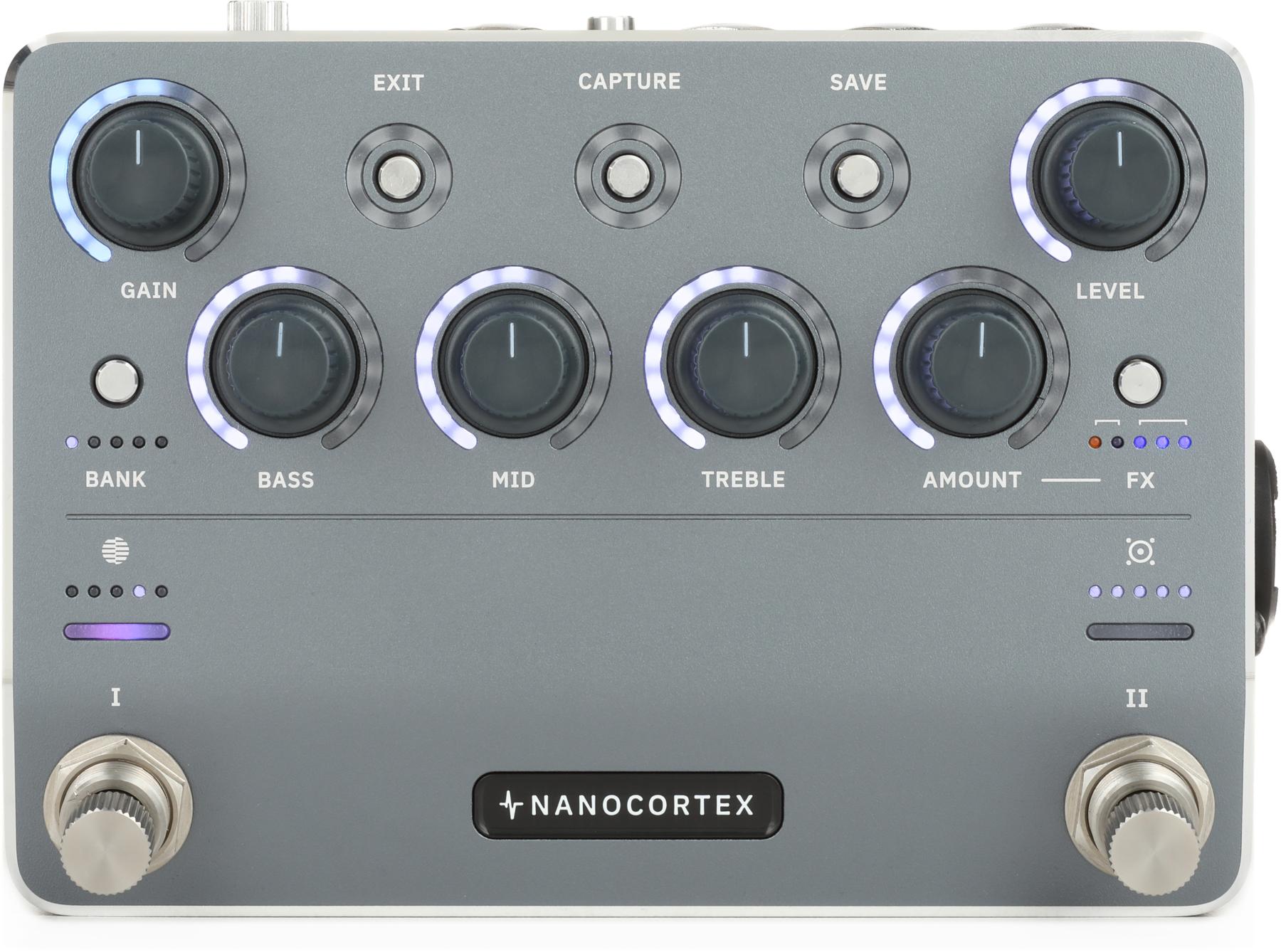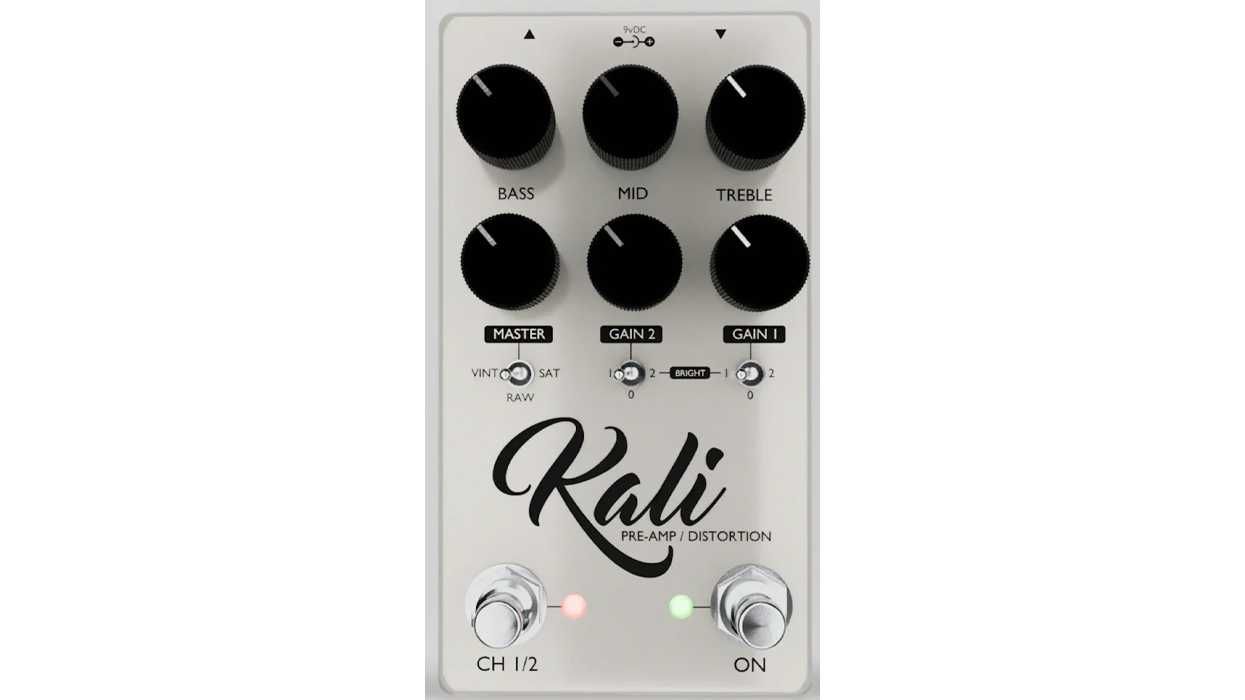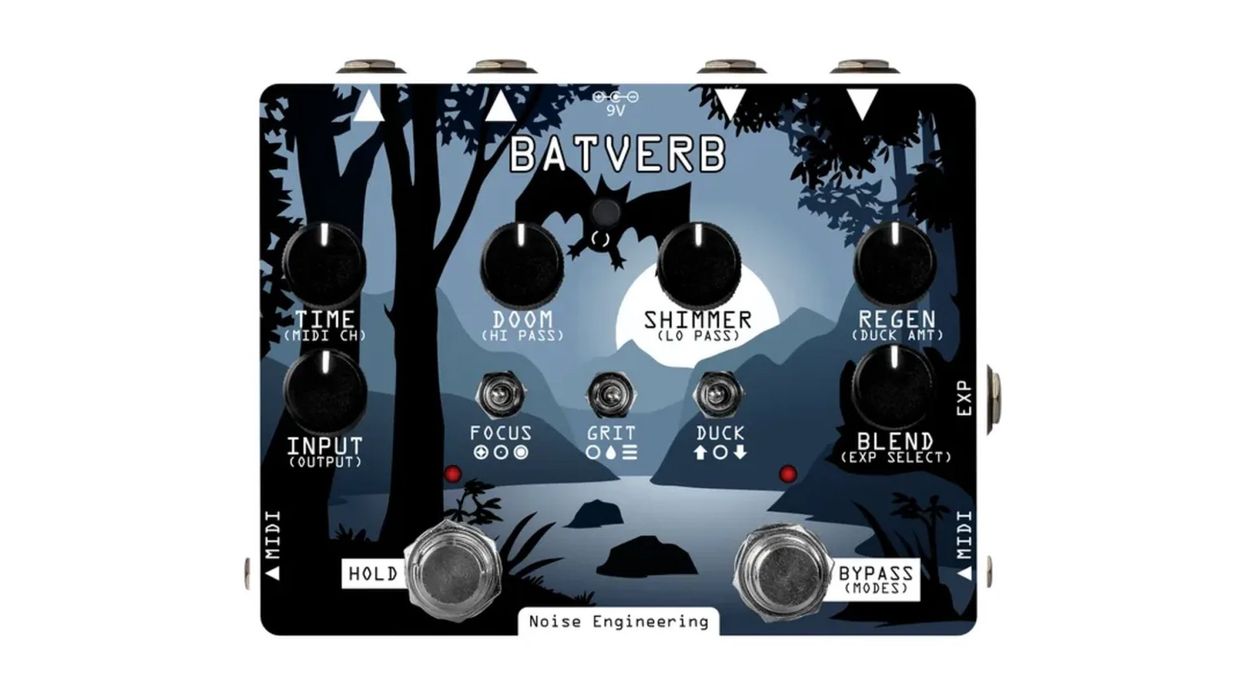For many of us, an electric guitar is as much a sound-design tool as a melodic vehicle. On the days and weeks when I can’t seem to coax a song or hook from my guitar, I love the release of just making noise, loops, and atmospheres that can bring me back around to the guitar as a conduit for melody. Meris’ Enzo X—which, on many nights, left me rapt in one of these less-self-conscious states—is more than a noise machine. Much more. In fact, it’s a very capable instrument in its own right: a polyphonic input synthesizer that also happens to work brilliantly with guitar and bass. And whether you’re looking for an elusive song’s magic side door or scoring a movie, Enzo X can crack open new states of guitar consciousness.
First, though, a word for those inclined to dive into a pedal like this recklessly: Figuring out how to save and recall presets is essential. Like any interactive synth stacked with many possible tone and mood departure points. It’s easy to get lost, forget where you came from, or lose track of the sonic gold you find in your meanderings. And there is indeed gold to uncover here.
Scare Tactics
Many of the sounds you can trigger with your guitar (or any instrument, for that matter) will be recognizable as cousins to classic analog synths. Working from factory presets, I found voices evocative of Minimoogs and ARPs as well as triggers for cool sequencing and arpeggiating effects. A player’s inner John Carpenter can run wild among these voices. (Try preset 52, “poly 77 artic” for a start.) And as I absentmindedly re-tracked The Thing in my head, I ended up really pleased—and creeped out—with the sounds I found in the chase.
More relatable guitar-oriented effects are here as well. There are many odd but operationally accessible phasers and envelope effects, to name a few. But the big fun is in probing the synth’s voices and working through how your playing adapts to each voice’s performance envelope. Many, for instance, rely on pitch or envelope triggering, which, at times, effectively deconstructs the fretboard and your sense of touch dynamics. Sometimes that yields frustration. But if you’re receptive to what the Enzo X gives back, you can open up pathways that reshape your sense of phrasing and timing and push back at your most obvious tendencies.
The Verdict
The Enzo X isn’t exactly easy to operate, but it isn’t unintuitive, either. The interface and menu design are inventive, functional, and, after some practice, pretty fluid. By the time I found my own creative orientation toward the pedal’s many powerful sounds, I’d achieved a fast-paced rhythm for working within the controls. At $599, the Enzo X is an investment. And it probably won’t be an automatic fit for most guitarists that are song-oriented in the most formal, familiar sense. But for the right player, the Enzo X could easily yield more musical return than another electric guitar or several pedals at the same price

